Dietary fiber provides numerous health benefits, from relieving constipation to helping with weight management to lowering the risk of cardiovascular disease. (1, 2) Despite all of the health benefits, Americans continue to fall short on meeting their daily fiber needs. (2) Fiber is a nondigestible carbohydrate found in foods like fruits, vegetables, whole grains, beans, nuts, and seeds. (2) Adults need a minimum of about 30 grams of fiber a day, but usually only manage to get about 16 grams. (1, 2)
If you’re struggling to get enough fiber from food, you may turn to fiber supplements to help fill in the gaps. But with so many supplements on the market featuring different types of fiber with various other ingredients, choosing the right one can be overwhelming. ColonBroom is a powdered fiber supplement that makes a lot of health promises and seems like the perfect fit for anyone struggling with constipation, bloating, or weight loss. But does it stand up to its claims?
Our ColonBroom review takes a closer look at the fiber supplement heavily promoted on TikTok, comparing its ingredients to the clinical evidence and evaluating its effectiveness, quality, and value.
Medical disclaimer: This article is intended for educational and informational purposes only. It is not intended as a substitute for medical advice. For health advice, contact a licensed healthcare provider.
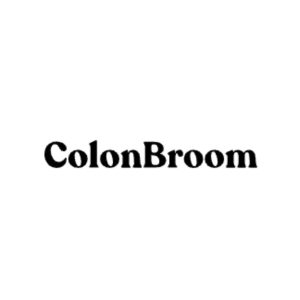

Key product features
What you should know
ColonBroom is a powdered fiber supplement that claims to alleviate constipation, gas, and bloating and help you lose weight. Psyllium husk powder is the active ingredient in the sugar-free, strawberry flavored supplement, packing in 3 grams of dietary fiber per serving.
- The psyllium powder in ColonBroom is a soluble fiber that research suggests may improve bowel regularity, lower cholesterol, control hunger, and assist with weight management. (3)
- At $1.17 per serving, ColonBroom costs nearly twice as much as the average market price for fiber supplements.
- One scoop of ColonBroom has 20 calories, 4 grams of carbs, and 3 grams of dietary fiber, meeting 10% of the daily value.
- The supplement maker recommends new users start with one serving of the fiber supplement a day for the first five days, then increase to the recommended two servings a day to reduce the risk of side effects like gas and bloating. (4
What is ColonBroom?
ColonBroom is a strawberry-flavored powdered fiber supplement made with psyllium husk powder. Psyllium is an indigestible and unfermentable soluble fiber found in the seed of the Plantago family of plants. Psyllium is a natural laxative added to supplements and medications that doctors recommend as a treatment for constipation. (5, 6)
According to the makers of the supplement, taking ColonBroom:
- Relieves constipation
- Reduces bloating
- Strengthens gut health
- Supports weight loss
- Makes you feel lighter
Other ColonBroom ingredients include natural flavor, citric acid, crystallized lemon, stevia leaf extract, sea salt, fruit and vegetable juice, and rice hulls. One scoop of ColonBroom provides 3 grams of fiber, 4 grams of carbohydrates, and 20 calories. It’s sugar-free and gluten-free, and makes a good choice for people following a vegan or keto diet.
If you have a hard time swallowing capsules and don’t like the taste of some of the more popular orange-flavored powdered fiber supplements available at your local pharmacy, ColonBroom may seem like a good fit. The strawberry-flavored fiber powder is a great way to add flavor and nutrition to a plain glass of water.
Though taste is an important factor to consider when choosing a fiber supplement for you, ColonBroom is more expensive than many other brands. Let’s take a closer look at the popular supplement and see if it’s worth the price.
How does ColonBroom work?
The psyllium husk powder in ColonBroom is the main ingredient and responsible for potential benefits.
As previously noted, doctors recommend psyllium medications and supplements to relieve constipation. Psyllium is a soluble fiber that alleviates constipation by adding bulk and water to stool, making it easier to pass. (6, 7) And, because it’s a nonfermentable fiber, psyllium may produce less gas and bloating than other types of fiber like bran or oat. However, bloating is still a potential side effect you may experience with ColonBroom, especially during the first week of use. (8)
The psyllium fiber in ColonBroom may also support gut health. A 2019 clinical trial published in the International Journal of Molecular Sciences found that supplementing with psyllium had a small but significant effect on the gut microbiota in a group of healthy people, in a way that supports healthier digestion, and an even greater effect in people with constipation. (9)
Supplementing with psyllium also seems to help with weight loss. A 2023 review and meta-analysis study published in the Journal of the American Association of Nurse Practitioners found that 4.8 months of supplementing with approximately 11 grams of psyllium per day before meals supported weight loss efforts in overweight and obese individuals. (10) While the researchers contributed the weight loss support to the satiating effects of the fiber, not all participants in the included studies consumed fewer calories while taking the fiber supplement, suggesting it may benefit weight loss efforts in other ways that aren’t yet known. (10)
More regular bowel movements, less bloating, and weight loss can contribute to the lighter feeling claims made by the maker of ColonBroom.
Health benefits associated with psyllium fiber may depend on dose. Studies looking at the potential benefits of the soluble fiber used doses ranging from 2 to 40 grams of psyllium a day, with 10 grams serving as the average. (11) Your doctor can provide dose recommendations for your fiber supplement based on your goals and health needs.
One serving of ColonBroom provides 3.6 grams of psyllium husk fiber and 3 grams of fiber, or 7.2 grams of psyllium and 6 grams of fiber with the recommended two servings per day.
Instructions say to mix the powder with 12 to 14 ounces of water and drink right away about 30 to 60 minutes before a meal. According to the ColonBroom website, it can take two to three months of regular use to get the best results.
Potential side effects of ColonBroom
ColonBroom is safe for most people, but it may cause unwanted side effects. The company suggests starting with one scoop a day for the first seven days, then increasing to two scoops a day thereafter. The slow introduction may reduce side effects like flatulence, bloating, and stomach pain. (6, 12)
Increasing your fluid intake when adding more fiber to your diet may also reduce risk of side effects. Too much fiber without enough water may cause or worsen constipation. (12)
ColonBroom may also affect the absorption of medications and supplements, making them less effective. (6) The company recommends taking the high-fiber supplement a few hours before or after other medications or dietary supplements to reduce risk of interactions.
You should avoid taking ColonBroom if you’re sensitive to psyllium or allergic to strawberries.
Is ColonBroom worth the price?
At $1.17 per serving, ColonBroom is a pricey fiber supplement, costing almost double the average market price. Subscribing or buying in bulk lowers the price. For example, the price drops to $0.73 per serving with a subscription that supplies three bottles of ColonBroom every three months.
ColonBroom claims to use high-quality ingredients and suggests it’s a better product than other fiber supplements. However, it’s not clear if the product is third-party tested for quality and potency, but it is made in a facility that follows the FDA-required Good Manufacturing Practices (GMP). (13)
We do like the strawberry flavor of ColonBroom, making it stand out from other name brand fiber supplements only available unflavored or orange flavored. However, many of the other fiber supplements have a much lower price point, provide the same amount of psyllium and fiber, and are third-party tested.
Whether ColonBroom is worth the price depends on your budget, taste preferences, fiber needs, and health goals.
What is ColonBroom Premium?
ColonBroom Premium is a fiber supplement from the makers of ColonBroom with added ingredients aimed at supporting weight management. In addition to psyllium husk fiber, ColonBroom Premium has L-carnitine, Capsimax, chromium, and B vitamins. It’s also strawberry flavored.
ColonBroom Premium is higher in fiber than ColonBroom, providing 4 grams per serving versus 3 grams. It’s also an excellent source of vitamin B6 and vitamin B12 and meets 6% of the daily value for iron. It’s promoted as a supplement that controls cravings, reduces bloating, and flattens the tummy.
However, research fails to show that weight loss supplements lead to significant changes in weight, and the added ingredients in ColonBroom Premium may not offer any additional benefits for weight loss. (14)
The added ingredients in ColonBroom Premium increases the price of the fiber supplement to $1.42 per serving.
What customers are saying
Amazon customers have mixed reviews for ColonBroom, giving it an average score of 3.8 out of 5. Some customers liked the taste and effectiveness of the fiber supplement, however others were disappointed with the results and experienced side effects like stomach pain and diarrhea.
Verified Amazon buyer BJ J. noted that it took time to get used to the taste, but they’re pleased with the results. “When I first tried this product, I wasn’t sure about the aftertaste. But once you get past it, it’s really good. Definitely helps fix sugar cravings, and leaves you feeling full. Down 7 pounds so far since I’ve been drinking Colon Broom.”
Taylor is an Amazon shopper who lost weight taking the fiber supplement, but finds it a little on the expensive side.
“Have lost about 10 lbs and feel fantastic! It is a little expensive but I keep finding myself ordering another supply.”
Taylor, Amazon
Amazon customer reviewer who goes by “Shop2Shop” was disappointed that ColonBroom didn’t live up to their expectations.“I will not be reordering this product. It did help with sugar cravings, but did not help with bloating and weight loss.”
Specs
| Form | Powder |
| Active ingredient | Psyllium husk powder |
| Serving size | 1 scoop |
| Servings per container | 60 |
| Price per serving | $1.17 |
| Fiber per serving | 3 grams |
| Flavor | Strawberry |
Who ColonBroom is recommended for:
- Individuals struggling to get enough fiber in their diet who dislike fiber capsules
- People looking for a fiber supplement that helps relieve constipation and keep them regular
- Folks interested in the digestive health benefits of psyllium fiber and like a supplement that can level up their glass of water
Who ColonBroom is not recommended for:
- Individuals who need to take medications before or with meals
- People allergic to strawberries or sensitive to psyllium fiber
- Anyone who needs to follow a low-fiber diet to manage a medical condition
ColonBroom alternatives
ColonBroom is a decent fiber supplement, but there are many alternatives. The best ColonBroom alternative for you depends on the type of fiber you’re looking for, supplement form, and goals.
If you like the potential benefits of ColonBroom, you may want to look for alternative fiber supplements that feature psyllium fiber as the main active ingredient and supply about 3 grams of fiber per serving.
Nutricost Psyllium Husk Powder is an unflavored alternative to ColonBroom. According to the dietary facts label on the fiber supplement, one scoop has only 1 gram of fiber. However, the Nutricost scoop size is much smaller—1 gram versus 5.7 grams for ColonBroom. It’s also significantly less expensive, costing $0.05 per serving. You need three scoops of Nutricost Psyllium Husk Powder to get the same amount of fiber as ColonBroom, which would still cost a lot less at $0.15 per three scoops.
However, the Nutricost fiber supplement is unflavored and may not work for those who want to add flavor and nutrition to their glass of water. But, it has only one ingredient and is third-party tested, bumping up its score.
Double Wood Supplements Psyllium Husk capsules make a good choice if you’d rather take a pill to increase fiber intake. With less than 1 gram of fiber per two capsule serving, you’d have to take about six capsules of the Double Wood supplement to get the same amount of fiber as ColonBroom. However, at $0.17 per serving (or $0.40 for three servings), the Double Wood fiber capsules are more budget-friendly. The supplement is also third-party tested.
If you don’t tolerate psyllium or digestive health is your focus, you may like Naked Nutrition Organic Fiber Supplement with baobab fiber. Preliminary research suggests baobab fiber may be a prebiotic, a special fiber that serves as a source of food for the friendly microorganisms that live in the gut, helping maintain gut flora balance. (15)
Baobab powder is the only ingredient in the Naked Nutrition fiber supplement, providing 5 grams of fiber per serving. The high-fiber supplement is third-party tested and costs $0.48 per serving, about half the cost of ColonBroom, and has a naturally sweet, citrusy flavor.
Compare ColonBroom
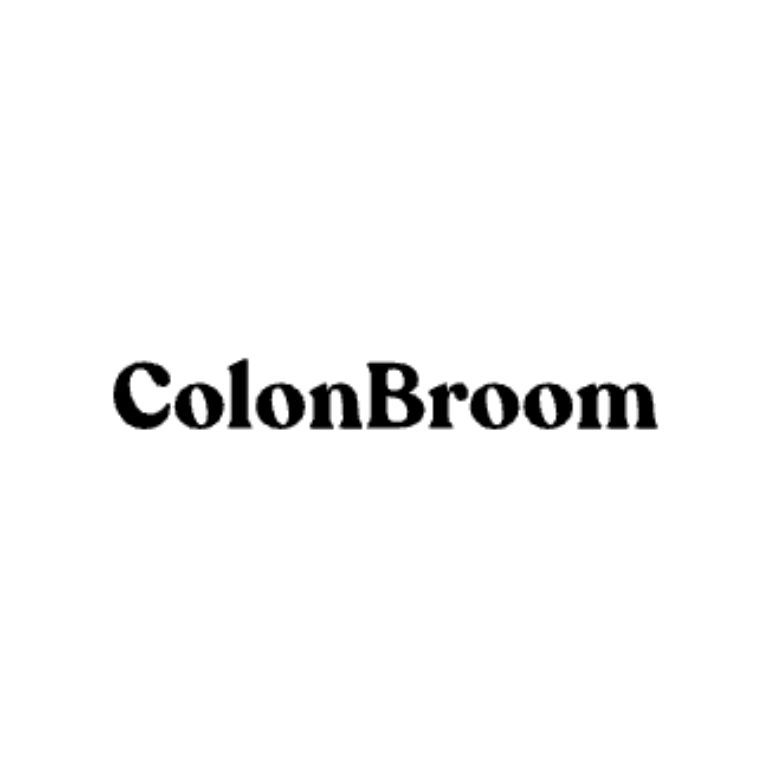
|
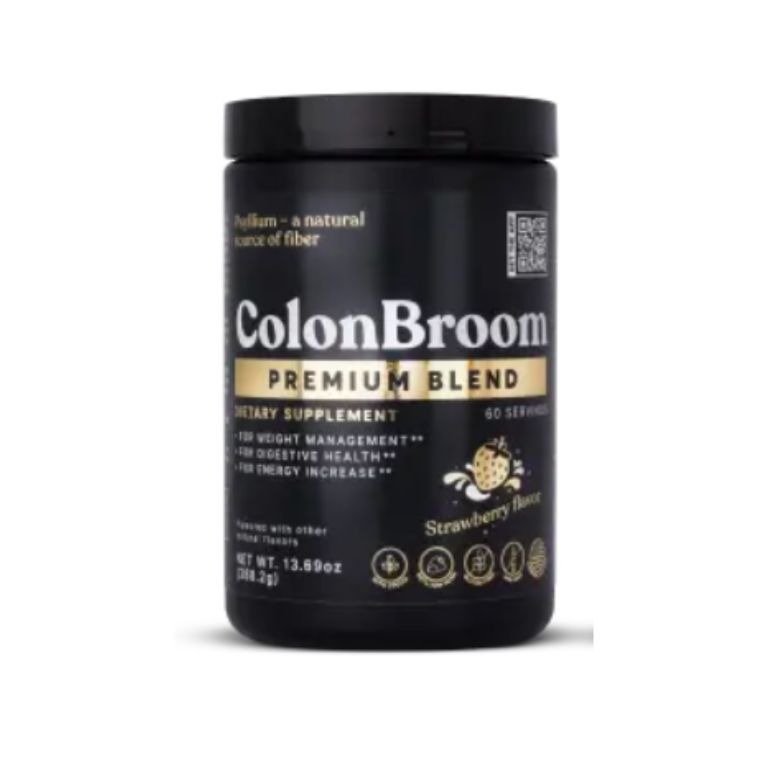
|
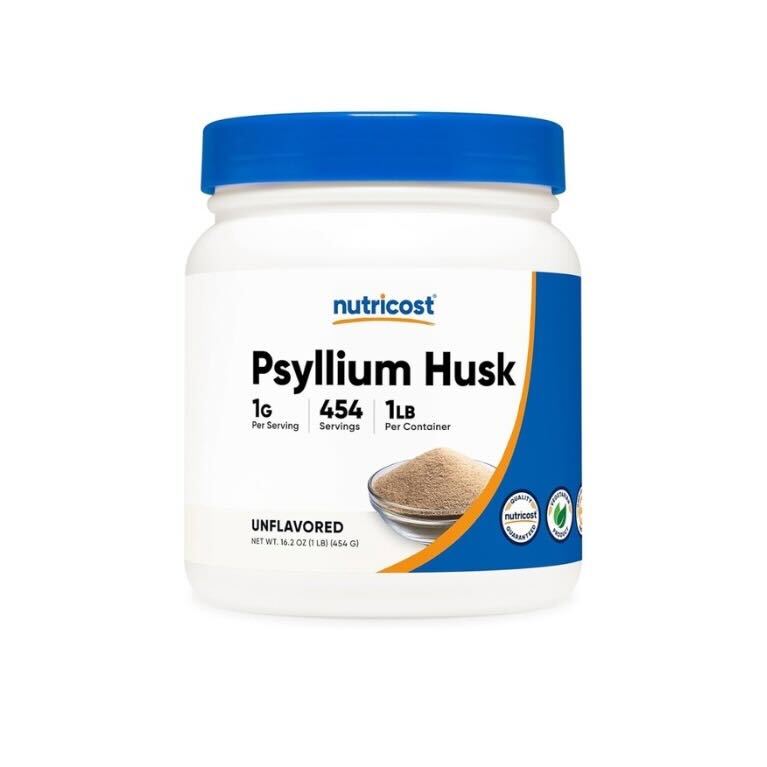
|
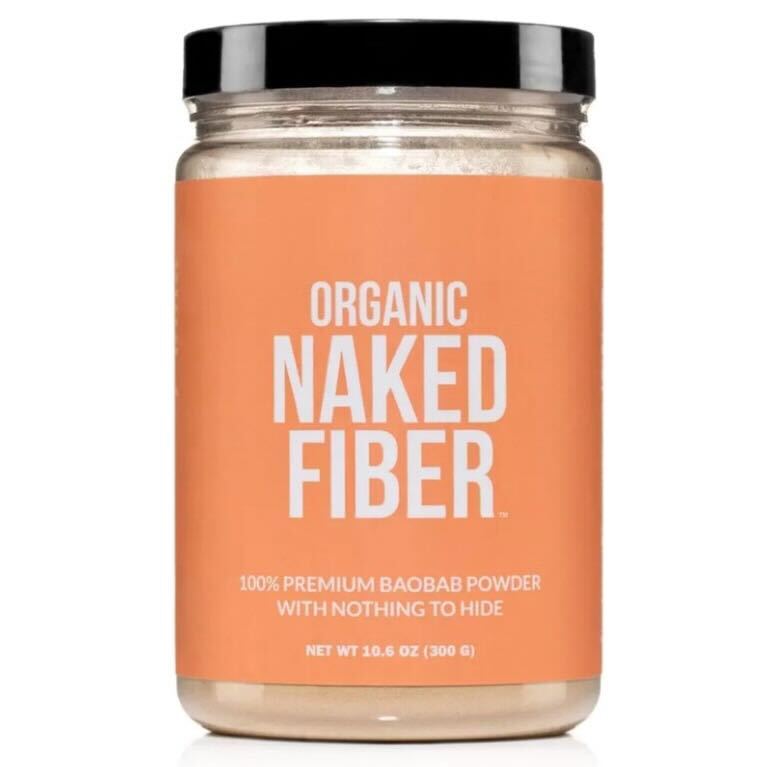
|
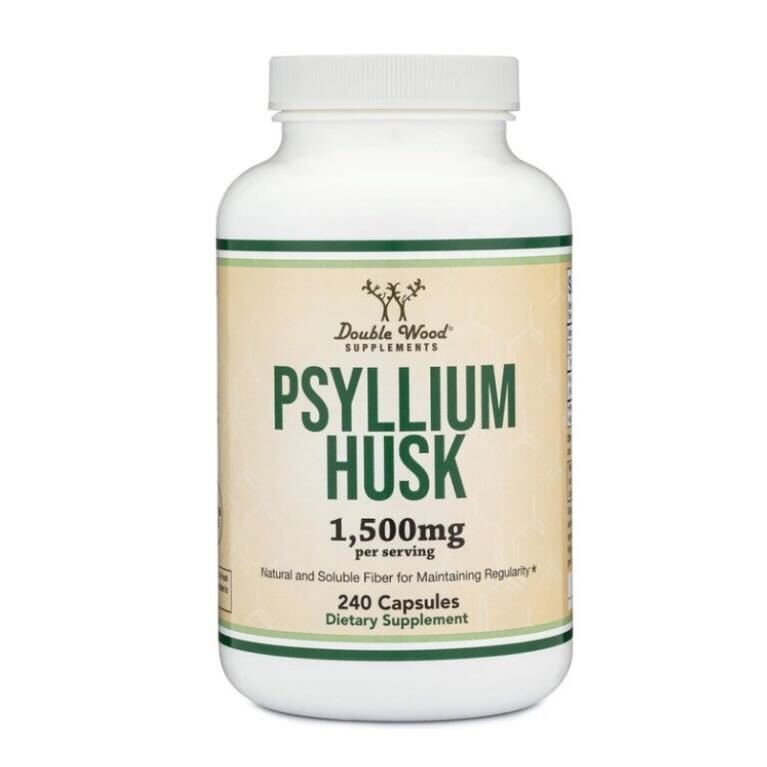
|
|
| ColonBroom | Colonbroom Premium | Nutricost Psyllium Husk Powder | Naked Nutrition Naked Fiber | Double Wood Psyllium Husk | |
| Rating | |||||
| Cost per serving | $1.17 | $1.25 | $0.05 | $0.48 | $0.17 |
| Key ingredients | Psyllium seed husk powder | Psyllium husk powder | Psyllium husk powder | Dehydrated baobab fruit pulp | Psyllium seed husk powder |
| Form | Powder | Powder | Powder | Powder | Capsule |
| Dose | 1 scoop | 1 scoop | 1 scoop | 1 scoop | 2 capsules |
| Fiber per dose | 3 g | 4 g | 1 g | 5 g | < 1 g |
| Doses per day | 2 | 2 | 1 | 1 | 1-3 |
How we test supplements
People take dietary supplements to fill in nutritional gaps, enhance well-being, or support health goals. No matter your need, we want to help you find a supplement that’s effective and safe and helps you achieve your goal. Our reviews include products we’ve thoroughly tested and evaluated against our customized testing and scoring methodology, looking at several factors such as supplement effectiveness, ingredients, safety, and price.
For more detailed information about our review process check out our supplements testing methodology page.
Efficacy—40%
Efficacy is the most heavily weighted category for our supplement scoring system. An effective supplement delivers on its promised benefits. For this factor, we look at supplements, ingredients and formulations and compare it to the available scientific data.
For this category we look for:
- Clinical evidence
- Calories per serving
- Dose efficacy
- Synergistic effects
- Proprietary blends
Safety and side effects—35%
Supplement safety and potential side effects are important factors to consider when looking for the right product. Supplements contain active ingredients that affect how the body functions and may cause adverse reactions or unwanted side effects. We look at the safety profiles of the supplements we review, checking ingredients, formulations, and additional testing to evaluate safety.
For this category we look at:
- Reported side effects
- Third-party testing
- Manufacturer accreditation
- Artificial sweeteners
Value—20%
Price influences purchasing decisions, but may not accurately reflect a supplement’s value. For this category, we compare the price of the supplement to its quality and effectiveness, making sure it provides a solid return on your investment.
Our factors in this rating include:
- Price per serving
Customer experience—5%
Customer experience with a supplement and brand affects satisfaction, loyalty, and the likelihood of repeat purchases. We include this category in our review process because of how it influences purchasing decisions.
The factors for this rating include:
- Ease of purchase
- Shipping and returns
- Customer support
FAQs
How much does ColonBroom cost?
A 60-serving container of ColonBroom costs $69.99 or $64.99 with a monthly subscription, which is nearly twice as high as the market average for fiber supplements. Buying three 60-serving containers at once lowers the price to $48.99 or $43.99 with a subscription that automatically delivers three containers every three months, which is closer to the average price.
The pricey fiber supplement may be worth it if the strawberry flavor makes it easier to drink than the other brands, helping you reach your daily fiber goals.
Is ColonBroom safe?
ColonBroom is likely safe for most healthy people. However, talk to your doctor before adding a fiber supplement to your daily routine. The makers of ColonBroom recommend taking the fiber supplement a few hours before or after other medications or supplements to avoid contraindications. (6) They also suggest not taking more than the recommended two doses per day.
People with a digestive disorder and people who are pregnant or breastfeeding should only take fiber supplements like ColonBroom under the direction of their doctor. (6)
Can I take ColonBroom every day?
You can take ColonBroom every day, according to the supplement instructions. However, they recommend first time users start with one serving a day for the first seven days then bump up to the usual dose of two servings a day. The gradual introduction of the fiber supplement can reduce risk of side effects like gas, bloating, and constipation. (6, 12)
These statements have not been evaluated by the Food and Drug Administration. These products are not intended to diagnose, treat, cure, or prevent any diseases.
Our experts
Lauren Panoff, MPH, RD
Lauren Panoff, MPH, RD is a plant-based registered dietitian, freelance writer, and content strategist for health and nutrition brands. She completed her nutrition education at Colorado State University, her dietetic internship through Michigan Medicine, and holds a Master of Public Health degree from Michigan State University. Lauren has been working in the wellness industry for over 15 years, including time spent in project management, public health standards, dietary supplement testing, inpatient and outpatient nutrition therapy, and child education. She has followed a plant-based lifestyle for over a decade and is passionate about helping others enjoy a healthier and more meaningful life.
Jessica Coulon
Jessica is a contributing editor and writer who specializes in fitness, health, nutrition, and science content. Previously, she was an editor for Popular Mechanics and Bicycling, where she covered pro cycling news, wrote how-to guides, and tested all the latest and greatest bike gear. She was also a regular shoe tester and contributor for Runner’s World. You can often find her skiing or riding her mountain bike, and racing with the F1RE female enduro team.
Lily Moe
Lily is a Brooklyn-based writer and editor with over seven years of experience in health media. As a former Fitness Coach, Lily’s editorial prowess has largely focused on fitness, nutrition, and weight management. She has also spent a fair share of time in testing labs, analyzing everything from protein powders to yoga mats. Her work has appeared in Verywell Fit, Verywell Mind, Health, and more.
Kelly Uhler
Kelly has a multifaceted background in elder care, health care, and copywriting. She has worked for organizations such as A Place For Mom and Homecare.com, which gave her the opportunity to work closely with families, providing reliable information to help them make informed.

Jill Corleone, RD
Fortune Recommends Nutrition Writer
About Author
Jill’s life has centered around nutrition and fitness for more than two decades. After earning her bachelor of science in nutrition at New York University in Manhattan, Jill went on to complete her internship at the University of Medicine and Dentistry of New Jersey in Newark.
She spent the early part of her career working as a clinical dietitian with a focus on pediatric nutrition. She then transitioned into management. Jill began her career as a freelance writer in 2007 while working as a clinical nutrition manager in Florida. She became a full-time writer in 2010 after the birth of her first child.
Jill has written for numerous publications, including Verywellfit, Diabetes Self-Management, Huffington Post, Livestrong.com, and SFGate.
References
- USDA. Over time, racial and ethnic gaps in dietary fiber consumption per 1,000 calories widen. Accessed October 19, 2024. https://www.ers.usda.gov/data-products/chart-gallery/gallery/chart-detail/?chartId=106189
- Ioniță-Mîndrican, C. B., Ziani, K., Mititelu, M., Oprea, E., Neacșu, S. M., Moroșan, E., Dumitrescu, D. E., Roșca, A. C., Drăgănescu, D., & Negrei, C. (2022). Therapeutic Benefits and Dietary Restrictions of Fiber Intake: A State of the Art Review. Nutrients, 14(13), 2641. https://doi.org/10.3390/nu14132641
- Nazario Franco,E.A., Sanches-Silva, A., Ribeiro-Santos, R., Ramos de Melo, N. (2020). Psyllium (Plantago ovata Forsk): From evidence of health benefits to its food application. Trends in Food Science & Technology. https://doi.org/10.1016/j.tifs.2019.12.006
- Bliss, D. Z., Savik, K., Jung, H. J., Whitebird, R., & Lowry, A. (2011). Symptoms associated with dietary fiber supplementation over time in individuals with fecal incontinence. Nursing research, 60(3 Suppl), S58–S67. https://doi.org/10.1097/NNR.0b013e3182186d8c
- Belorio, M., & Gómez, M. (2022). Psyllium: a useful functional ingredient in food systems. Critical reviews in food science and nutrition, 62(2), 527–538. https://doi.org/10.1080/10408398.2020.1822276
- National Library of Medicine. Metamucil. Accessed October 19, 2024. https://medlineplus.gov/druginfo/meds/a601104.html
- Jalanka, J., Major, G., Murray, K., Singh, G., Nowak, A., Kurtz, C., Silos-Santiago, I., Johnston, J. M., de Vos, W. M., & Spiller, R. (2019). The Effect of Psyllium Husk on Intestinal Microbiota in Constipated Patients and Healthy Controls. International journal of molecular sciences, 20(2), 433. https://doi.org/10.3390/ijms20020433
- Gonlachanvit, S., Coleski, R., Owyang, C., & Hasler, W. (2004). Inhibitory actions of a high fibre diet on intestinal gas transit in healthy volunteers. Gut, 53(11), 1577–1582. https://doi.org/10.1136/gut.2004.041632
- Jalanka, J., Major, G., Murray, K., Singh, G., Nowak, A., Kurtz, C., Silos-Santiago, I., Johnston, J. M., de Vos, W. M., & Spiller, R. (2019). The Effect of Psyllium Husk on Intestinal Microbiota in Constipated Patients and Healthy Controls. International journal of molecular sciences, 20(2), 433. https://doi.org/10.3390/ijms20020433
- Gibb, R. D., Sloan, K. J., & McRorie, J. W., Jr (2023). Psyllium is a natural nonfermented gel-forming fiber that is effective for weight loss: A comprehensive review and meta-analysis. Journal of the American Association of Nurse Practitioners, 35(8), 468–476. https://doi.org/10.1097/JXX.0000000000000882
- McRorie, J. W., Jr, & McKeown, N. M. (2017). Understanding the Physics of Functional Fibers in the Gastrointestinal Tract: An Evidence-Based Approach to Resolving Enduring Misconceptions about Insoluble and Soluble Fiber. Journal of the Academy of Nutrition and Dietetics, 117(2), 251–264. https://doi.org/10.1016/j.jand.2016.09.021
- National Library of Medicine. High-fiber foods. Accessed October 19, 2024. https://medlineplus.gov/ency/patientinstructions/000193.htm
- Office of Dietary Supplements. Dietary supplements: What you should know. Accessed October 19, 2024. https://ods.od.nih.gov/factsheets/WYNTK-Consumer/
- Office of Dietary Supplements. Dietary supplements for weight loss. Accessed October 19, 2024. https://ods.od.nih.gov/factsheets/WeightLoss-HealthProfessional/
- Duysburgh, C., Govaert, M., Guillemet, D., & Marzorati, M. (2024). Co-Supplementation of Baobab Fiber and Arabic Gum Synergistically Modulates the In Vitro Human Gut Microbiome Revealing Complementary and Promising Prebiotic Properties. Nutrients, 16(11), 1570. https://doi.org/10.3390/nu16111570
